(NLDO)- Ambassador Marc Knapper spoke to students of Hanoi National University about three important topics for the future of Vietnam - US relations.
On the afternoon of January 8, US Ambassador to Vietnam Marc Knapper spoke to students, faculty and leaders of Vietnam National University, Hanoi (VNU) about the relationship between the two countries. This event marked the beginning of activities to celebrate the 30th anniversary of Vietnam-US relations in 2025.
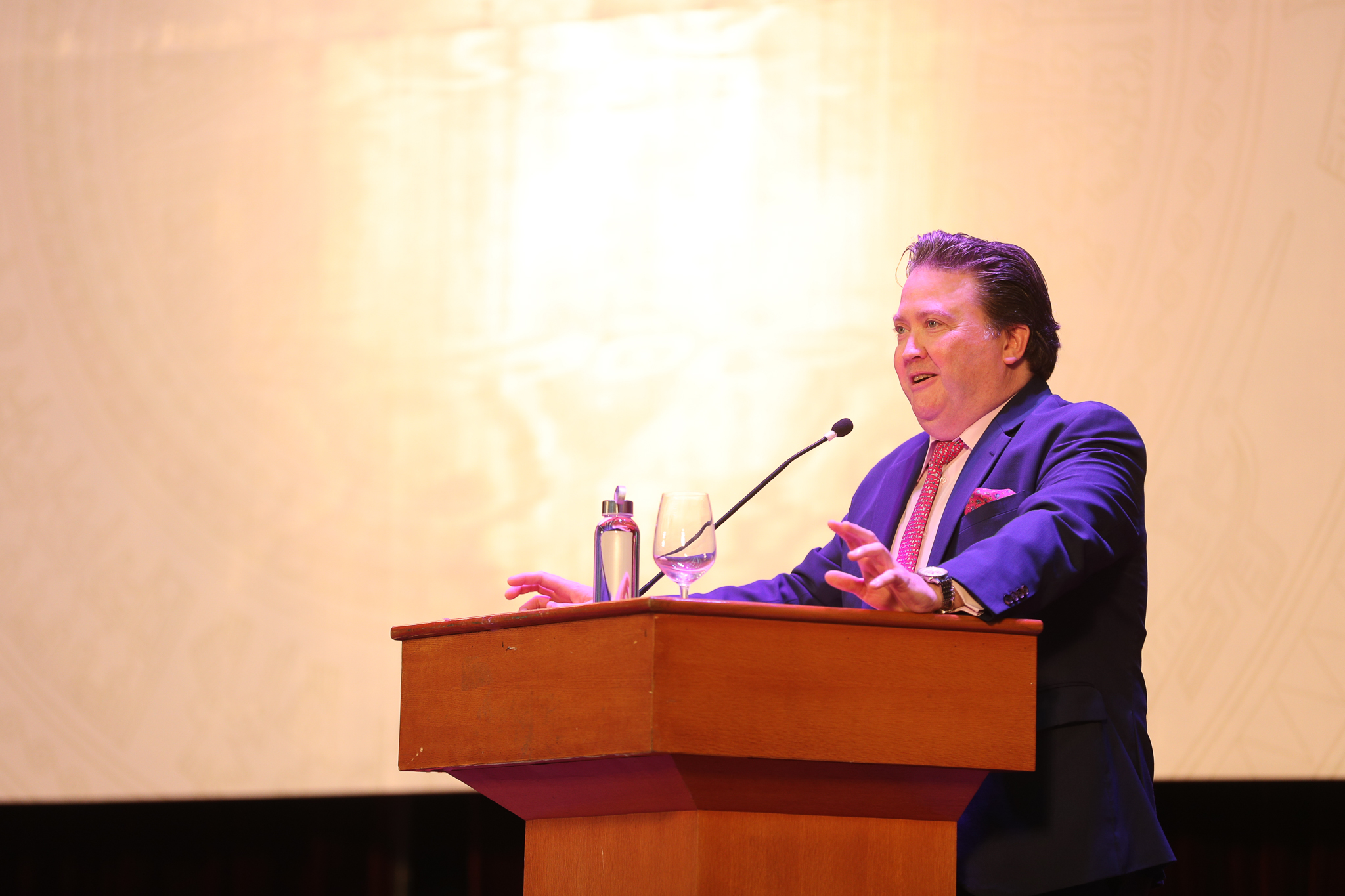
US Ambassador to Vietnam Marc Knapper speaks to students, faculty and leaders of Vietnam National University, Hanoi. Photo: VNU
In an inspiring speech to the 400 attendees, Ambassador Marc Knapper recalled that the school’s campus holds a special place in the story of the two nations, where 25 years ago, President Bill Clinton stood as the first US president to visit Hanoi, reflecting on the normalization of relations he announced in 1995.
It was President Clinton who announced a new chapter in US-Vietnam relations when he said: "Let the future be our destination."
And today, the US Ambassador wants to join “future leaders” to begin the celebration of 30 years of US-Vietnam relations and reflect on three important themes: Education, Innovation, and Partnership. “Together, they form the foundation for the next 30 years of US-Vietnam relations as we move beyond the past and look to the future,” he emphasized.
Quoting the Vietnamese saying: "If you plant a tree, you will reap its fruits", the Ambassador said that over the past 30 years, we have sown seeds of friendship and nurtured growing trees so that we can all enjoy the fruits of the US-Vietnam partnership and plant new trees for the future of this relationship.
The Ambassador emphasized the achievements of the two countries as well as the great prospects for cooperation in the following areas: Education - the foundation of the US - Vietnam Comprehensive Strategic Partnership; Innovation - the key to the next 30 years of the bilateral relationship; Partnership - what has transformed the two countries.
Today, Vietnam ranks 6th among countries with the largest number of international students studying in the US, with more than 30,000 Vietnamese students studying at US institutions each year, and including online programs, that number increases to nearly 300,000.
Over the past year, the U.S. Mission has worked with dozens of higher education institutions, including the University of Texas at Austin, Purdue University in Indiana, and Boise State University in Idaho, to explore the possibilities for deeper educational collaboration between universities in both countries. In March, a delegation of senior officials from 15 different U.S. universities will travel to Vietnam to establish and expand partnerships with more Vietnamese universities.
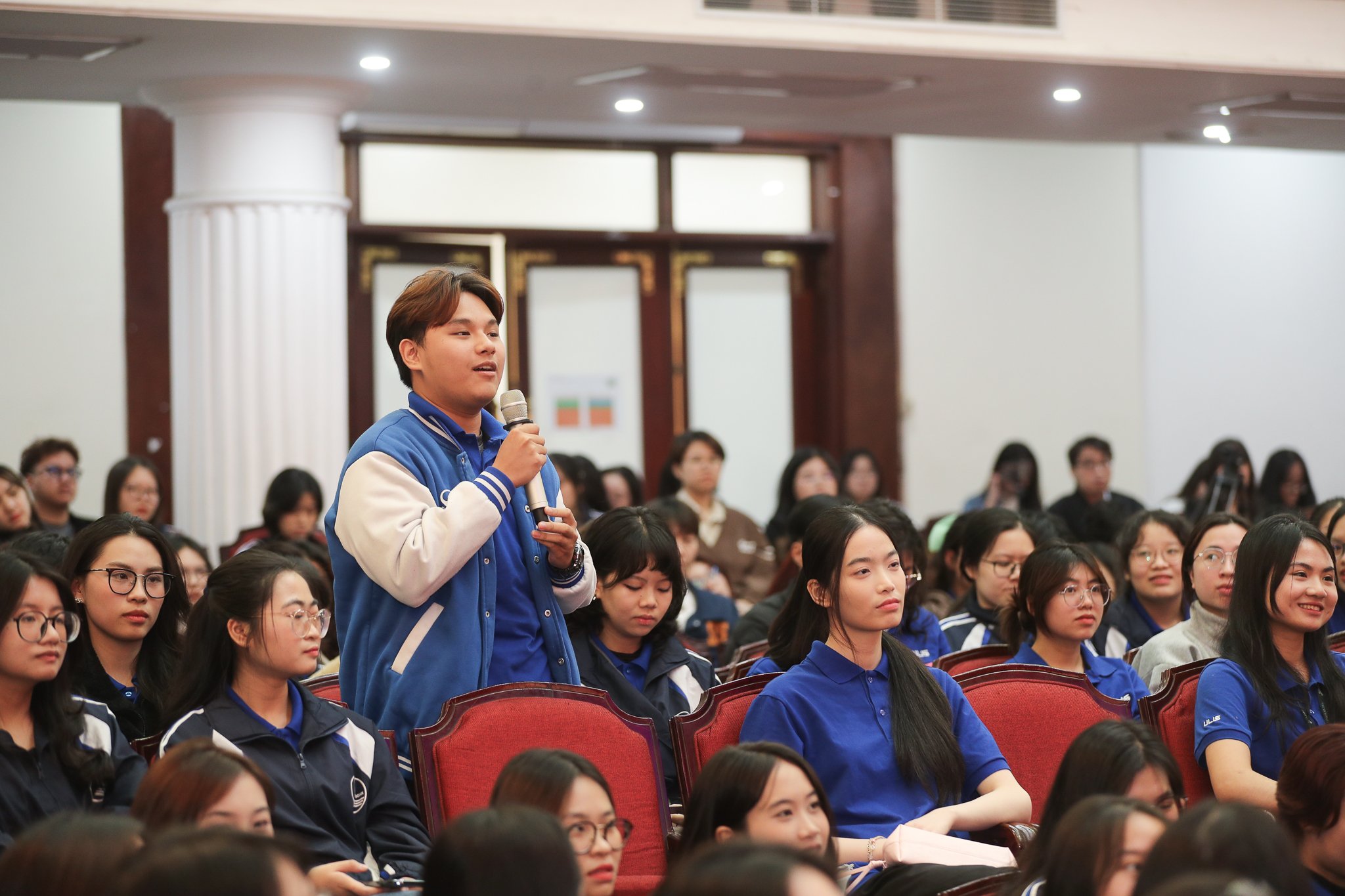
Students of Hanoi National University ask questions to US Ambassador Marc Knapper. Photo: VNU
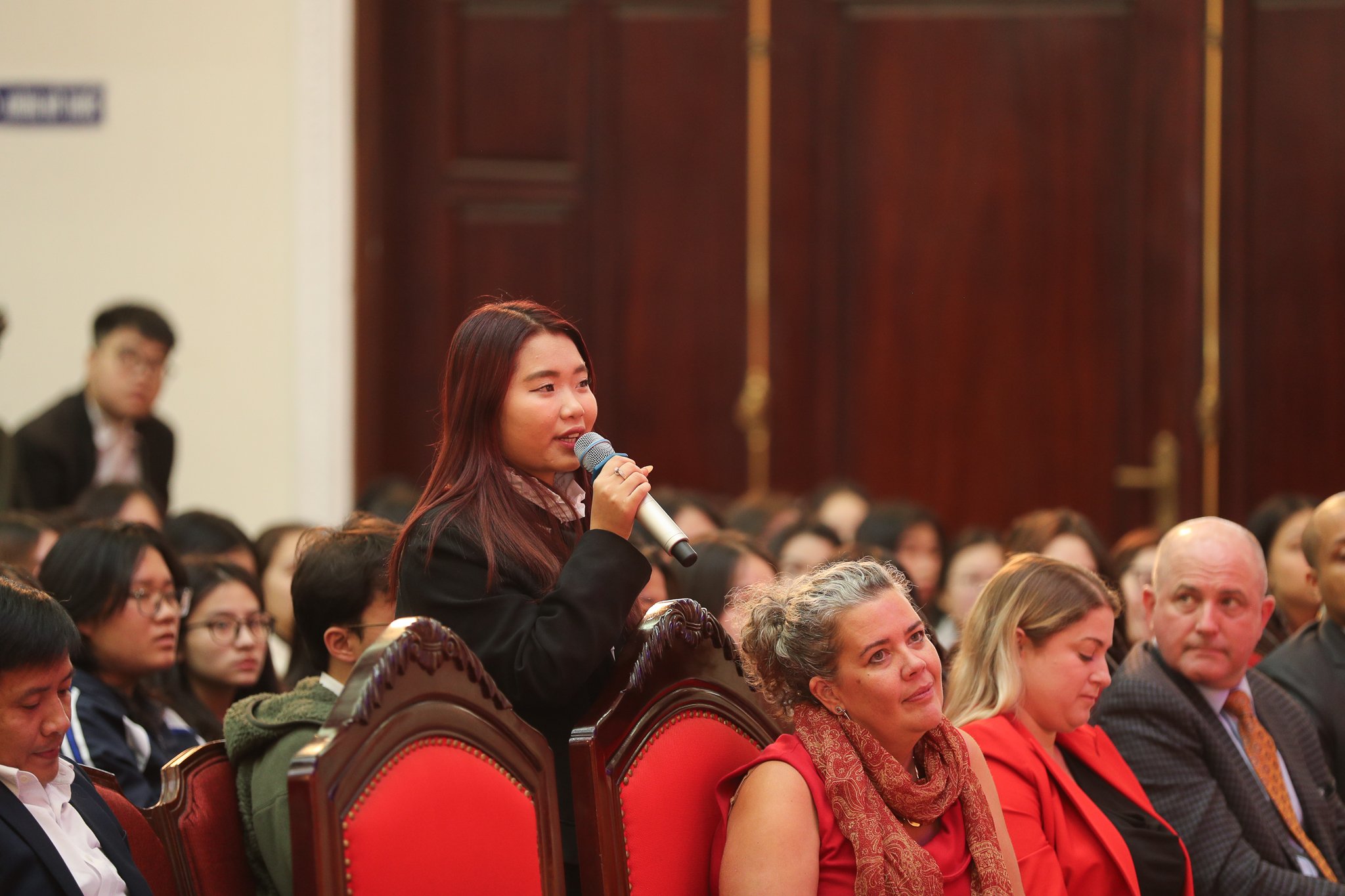
Thirty years ago, US-Vietnam trade was worth $450 million. Today, the two countries share $124 billion in bilateral trade. US direct investment in Vietnam is about $12 billion. "Our futures are intertwined. America is invested in Vietnam's success. Your prosperity is our prosperity," the Ambassador emphasized.
The US Ambassador emphasized a forward-looking approach to advancing the relationship, focusing on high-tech industries, semiconductors, AI, 5G technology, renewable energy and digital innovation. Private sector participation with names like Intel, NVIDIA, Coca Cola, Pepsi, General Electric Vernova and AES…
It’s not just the companies that are driving innovation in science, technology and health, but also the people. That person is Dr. Ha Thi Thanh Huong, a VNU alumnus and Head of the Department of Tissue Engineering and Regenerative Medicine at VNU-HCMC. Dr. Huong also studied in the US but chose to return to Vietnam to deepen her expertise in neuroscience to develop software to diagnose Alzheimer’s disease.
That is Amanda Nguyen, who will soon become the first Vietnamese-American female astronaut, with plans to collaborate with the Vietnam Space Center on space experiments, promoting a shared future of peaceful space exploration between the US and Vietnam.
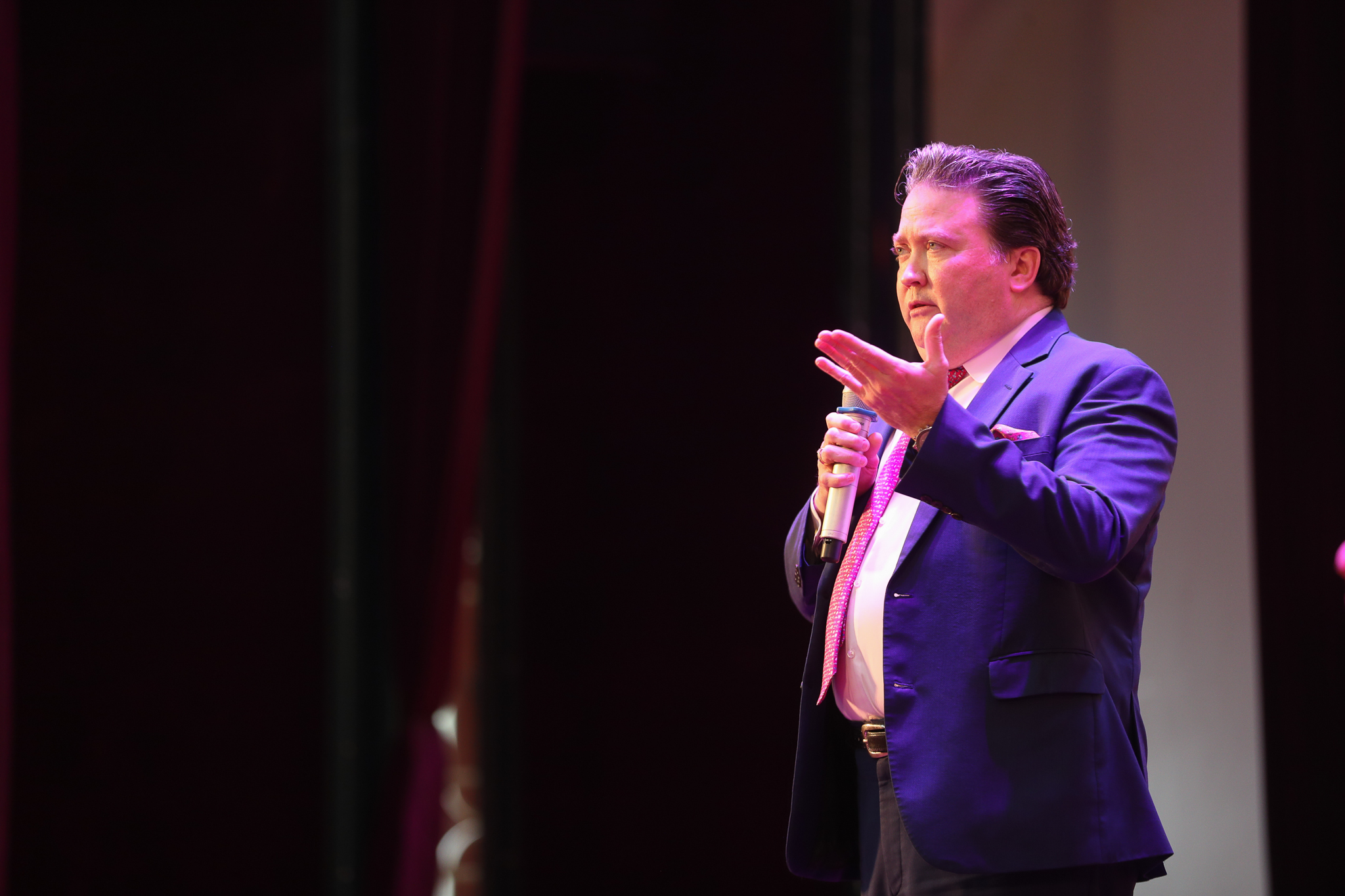
US Ambassador Marc Knapper interacts with students of Vietnam National University, Hanoi. Photo: VNU
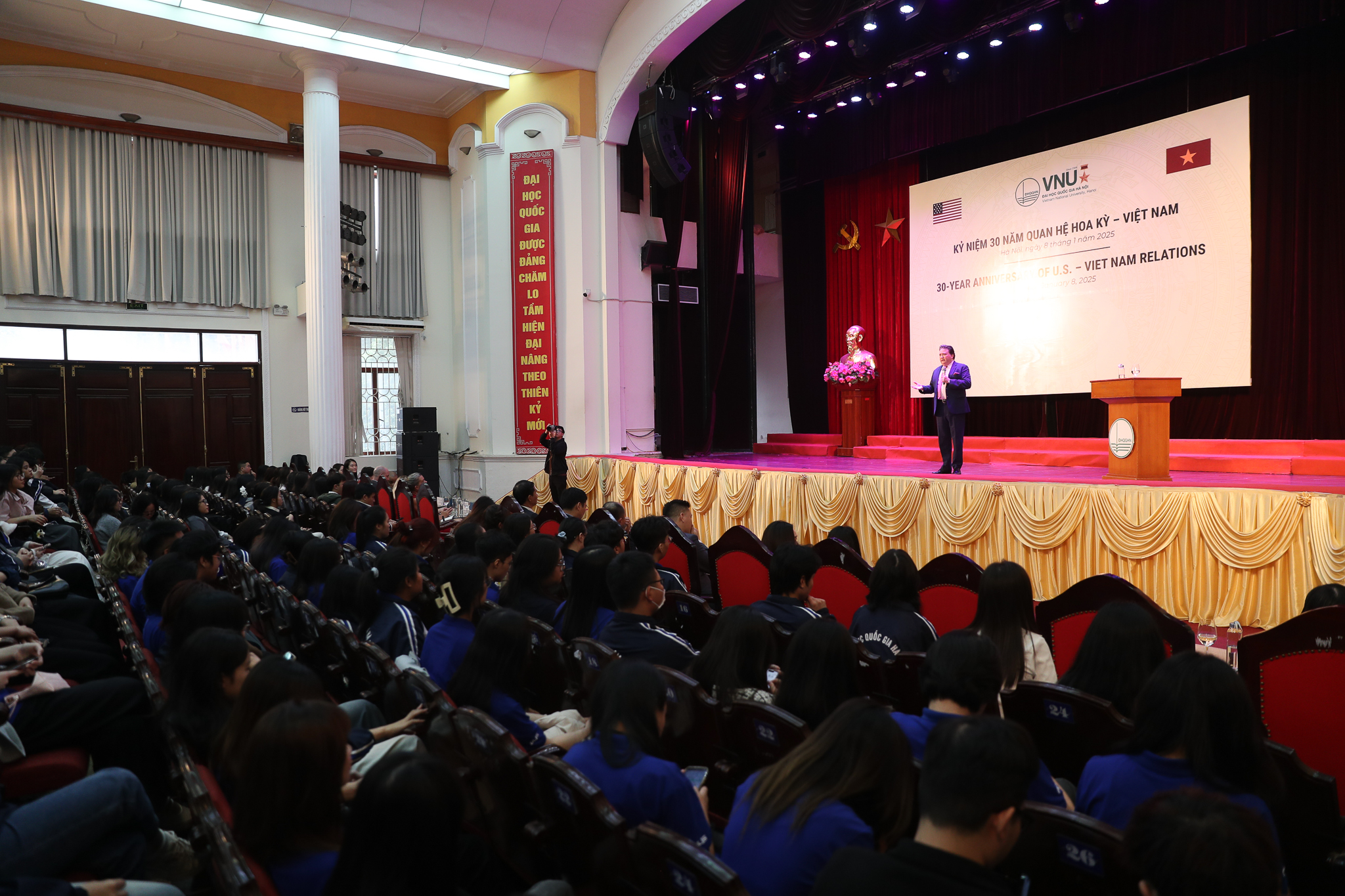
US Ambassador Marc Knapper interacts with students of Vietnam National University, Hanoi. Photo: VNU
Discussing the partnership between the two countries, the Ambassador stressed that 2025 not only marks 30 years of bilateral relations but also 50 years since the end of the war. It takes courage to overcome the bitterness of war to build a better future.
As President Joe Biden said at the United Nations in 2023 after a state visit to Vietnam: "Our relationship is a testament to the power of the human spirit and the capacity for reconciliation that today the United States and Vietnam are partners and friends. It is proof that even after the horrors of war, there is a way forward. Things can get better."
The two countries have worked together to clear unexploded ordnance, assist people with disabilities regardless of cause, and recover soldiers missing in action on both sides.
Visionary leaders from both Vietnam and the United States have planted the seeds of reconciliation—figures like Senator John McCain, Senator Patrick Leahy, Ambassador Le Van Bang, and many others. They understand that addressing the legacy of war is not only necessary, but also transformative.
Their courage has allowed us to move forward and see each other not as opponents but as partners. The two countries have become trusted partners with a friendship based on respect and trust, including respect for each other's independence, sovereignty, territorial integrity and political systems.
“A key part of that is a growing defense and security relationship that ensures Vietnam’s future is prosperous, stable, and peaceful. The United States is committed to working with Vietnam as it advances its military modernization goals and protects its sovereignty, independence, and territorial integrity,” the Ambassador affirmed.
He said these are key principles for the US-Vietnam relationship and will guide the defense and security relationship between the two countries now and in the future.
In 2024, the US transferred T6-C training aircraft to Vietnam. In December 2024, the US C-130J military transport aircraft and A-10 Thunderbolt II attack aircraft participated in the Vietnam International Defense Exhibition 2024.
“This underscores our shared goal of ensuring Vietnam has what it needs to protect its interests at sea, in the air, on land, and in cyberspace. This year, we plan to deliver a third Coast Guard cutter to the Vietnam Coast Guard and will strengthen maritime law enforcement cooperation between the United States and Vietnam through a recently announced $12.5 million aid package,” the Ambassador said.
"The trees planted by visionaries in a variety of areas including education, reconciliation, trade, and innovation are bearing fruit today. Now it is your turn to plant the seeds and nurture them. The next 30 years of the US-Vietnam partnership will be shaped by your generation. As we celebrate the achievements of the past, I would like to ask you what will you plant for the future?" - Ambassador said and ended his speech with a wish in Vietnamese:
"Congratulations on the 30th anniversary of bilateral relations between our two countries. I wish the new year filled with happiness, prosperity, peace, and security for both the United States and Vietnam, now and forever."
VNU cooperates with leading universities in the US
Speaking at the meeting, VNU Vice President Nguyen Hoang Hai said that as a leading multidisciplinary university in Vietnam, VNU has signed 33 bilateral cooperation agreements and memorandums with partners who are leading universities and research organizations in the US such as: Iowa University, San José State University, University of Chicago, Indiana University, Arizona State University, University of Maryland, University of Arizona, Keuka College...
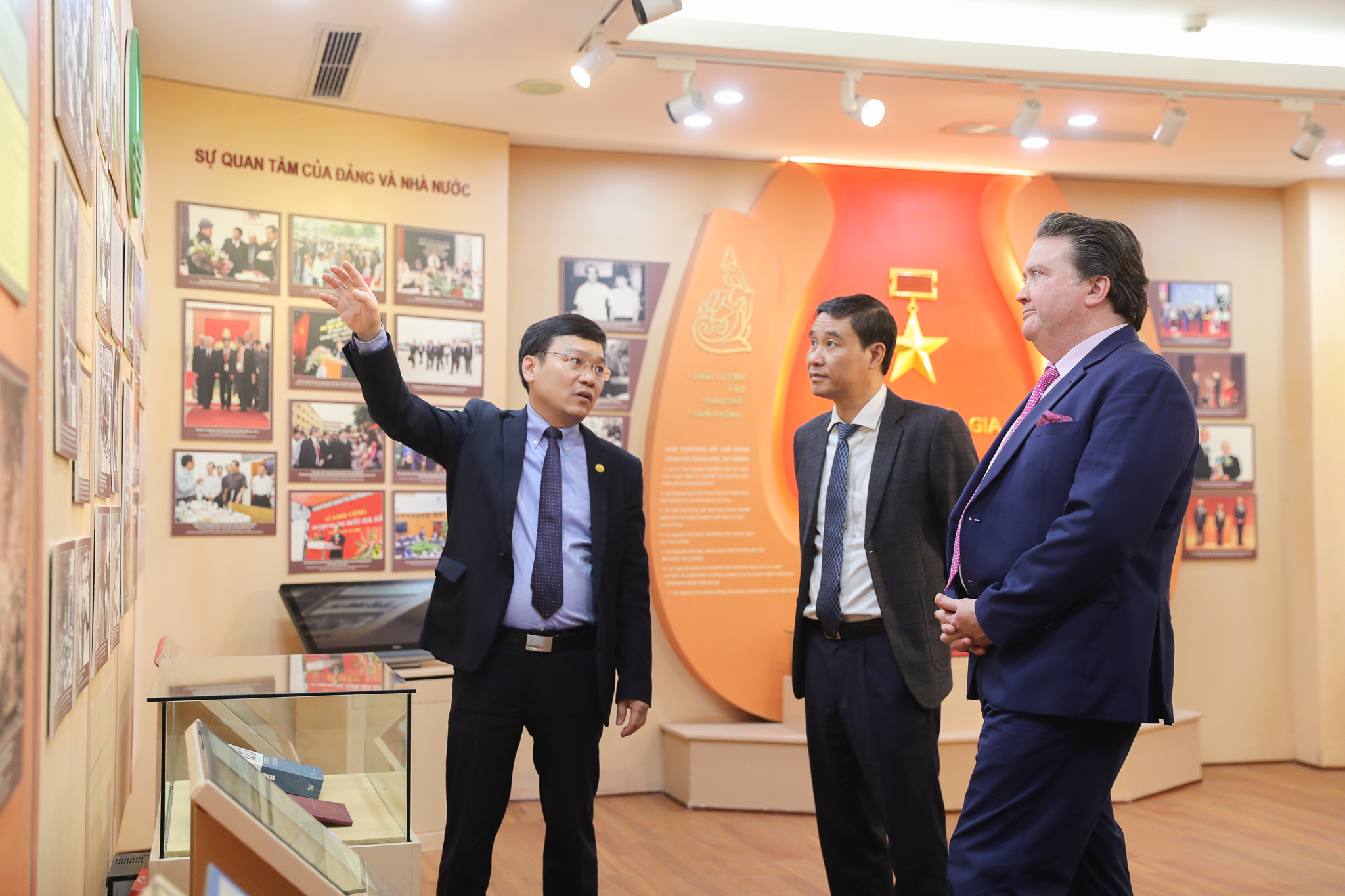
VNU Vice President Nguyen Hoang Hai (middle) and US Ambassador Marc Knapper visit the traditional room of Vietnam National University, Hanoi. Photo: VNU
Along with bilateral exchange activities, the two sides focus on basic science fields that are the strengths of American partners such as advanced programs of the Ministry of Education and Training and international standard training programs of VNU: Mathematics in cooperation with Washington University, Chemistry with Illinois University, Physics with Brown University, Biology with Turf University, Environment with Indiana University...; Semiconductors with Arizona University; programs within the framework of Project 165 (training source cadres for the Party and State according to the plan of the Central Organizing Committee), programs within the framework of Project 911, Project 322, Project for Collaborative Innovation in Higher Education (PHER)...
In 2024, VNU and the University of Arizona signed a cooperation agreement in the field of semiconductor technology research and development, with plans to train human resources at many levels, from high school to university and experts working in the industry. It is expected that there will be exchange activities such as developing training programs, sharing learning materials, exchanging staff and students, with financial support from the US Government.
Source: https://nld.com.vn/dai-su-marc-knapper-noi-chuyen-voi-sinh-vien-chung-ta-se-gioi-trong-gi-cho-tuong-lai-viet-my-196250108211413249.htm



![[Photo] Speeding up construction of Ring Road 3 and Bien Hoa-Vung Tau Expressway](https://vstatic.vietnam.vn/vietnam/resource/IMAGE/2025/3/31/f1431fbe7d604caba041f84a718ccef7)
![[Photo] General Secretary To Lam receives US Ambassador to Vietnam Marc E. Knapper](https://vstatic.vietnam.vn/vietnam/resource/IMAGE/2025/3/31/5ee45ded5fd548a685618a0b67c42970)

![[Photo] Prime Minister Pham Minh Chinh receives delegation of leaders of US universities](https://vstatic.vietnam.vn/vietnam/resource/IMAGE/2025/3/31/8be7f6be90624512b385fd1690124eaa)
![[Photo] 2nd Conference of the Party Executive Committee of Central Party Agencies](https://vstatic.vietnam.vn/vietnam/resource/IMAGE/2025/3/31/8f85b88962b34701ac511682b09b1e0d)
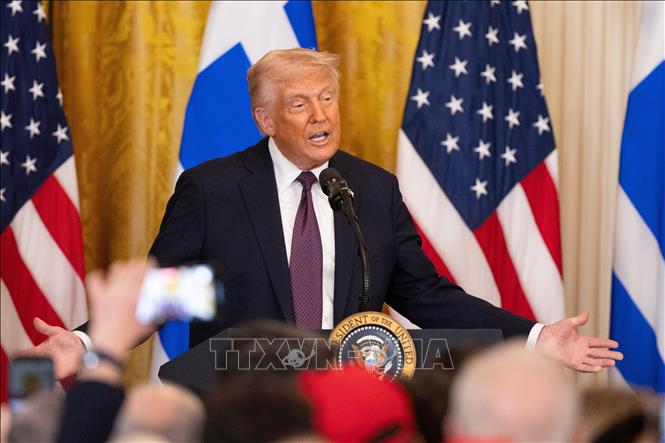

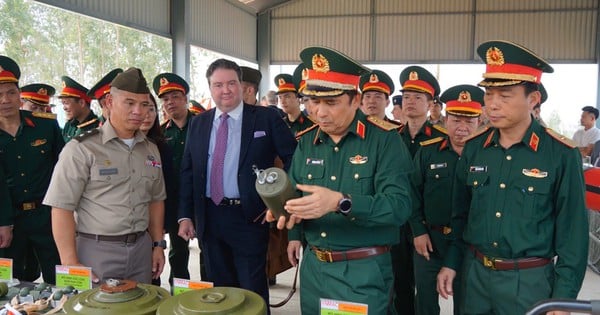
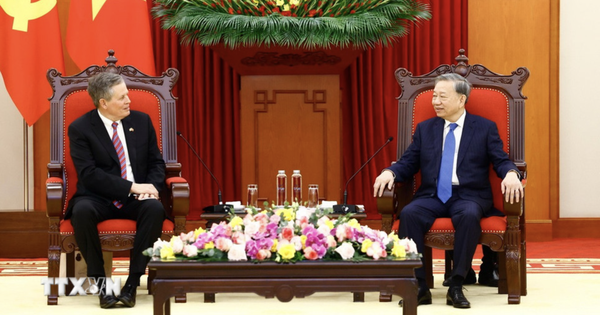
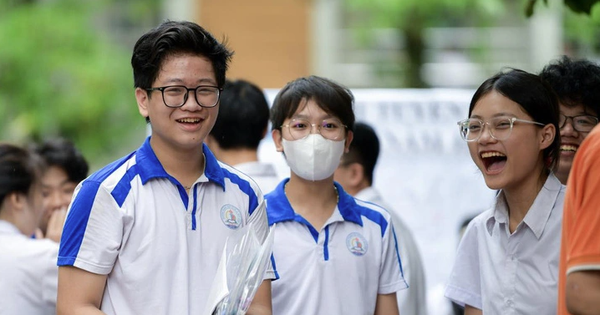

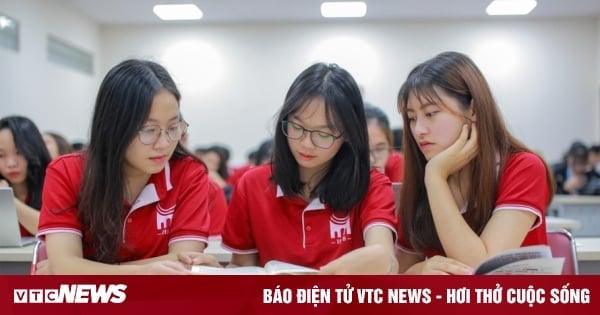

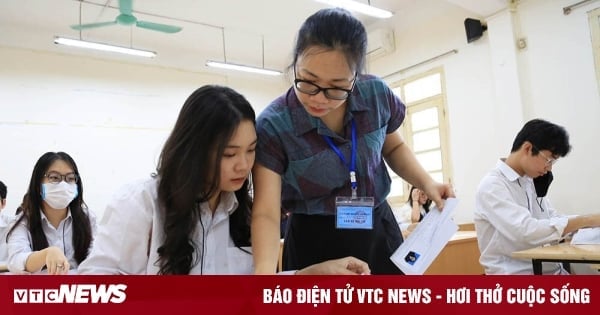
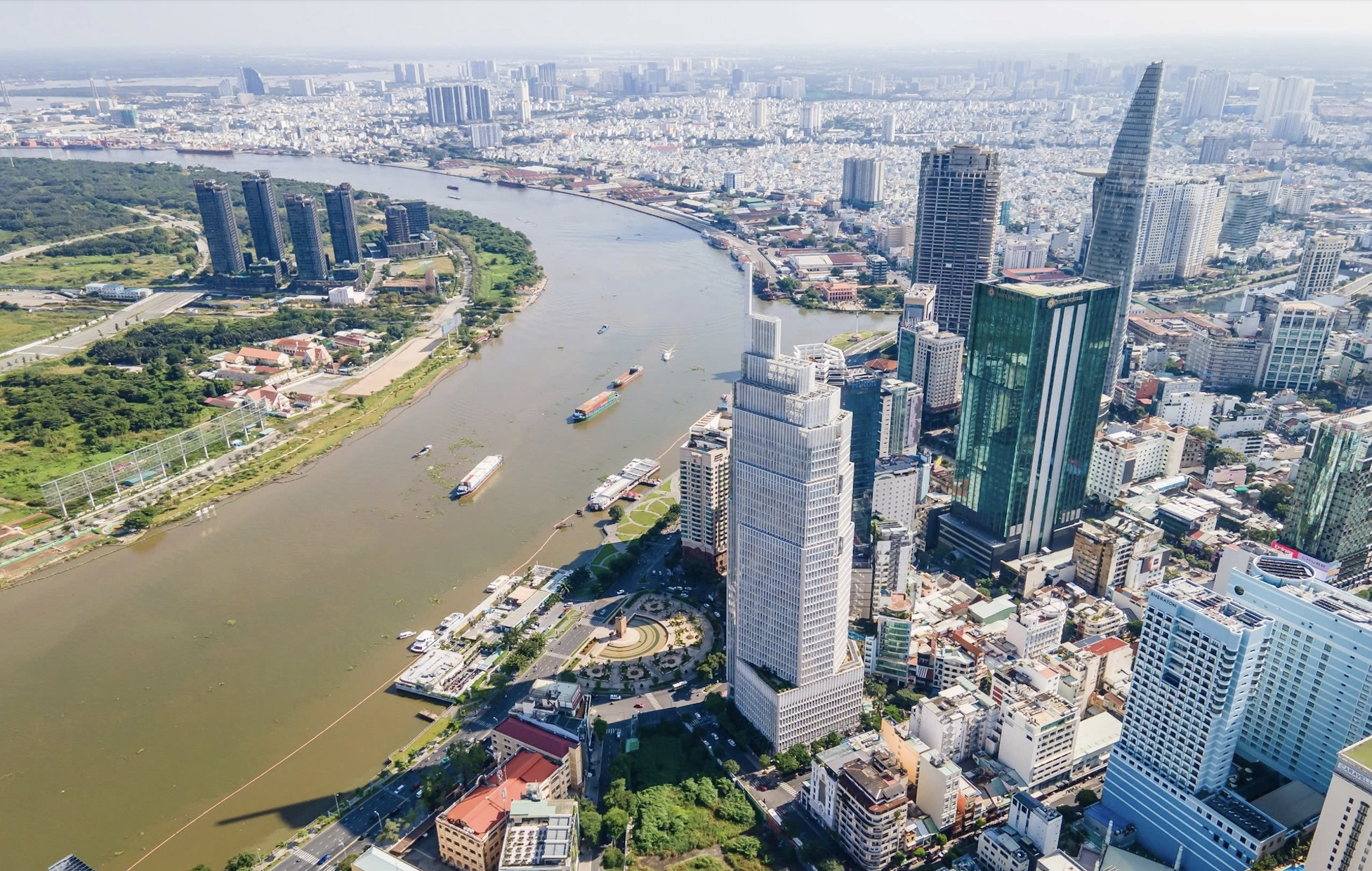
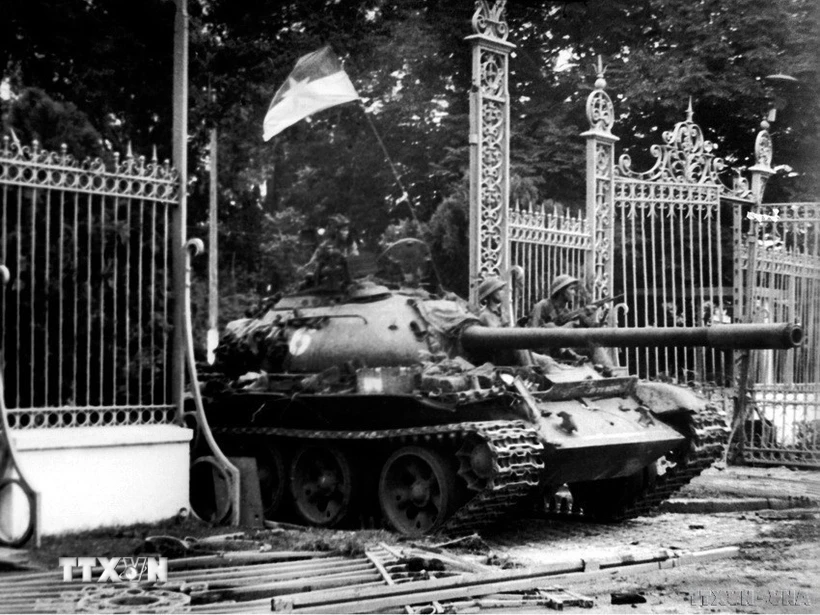

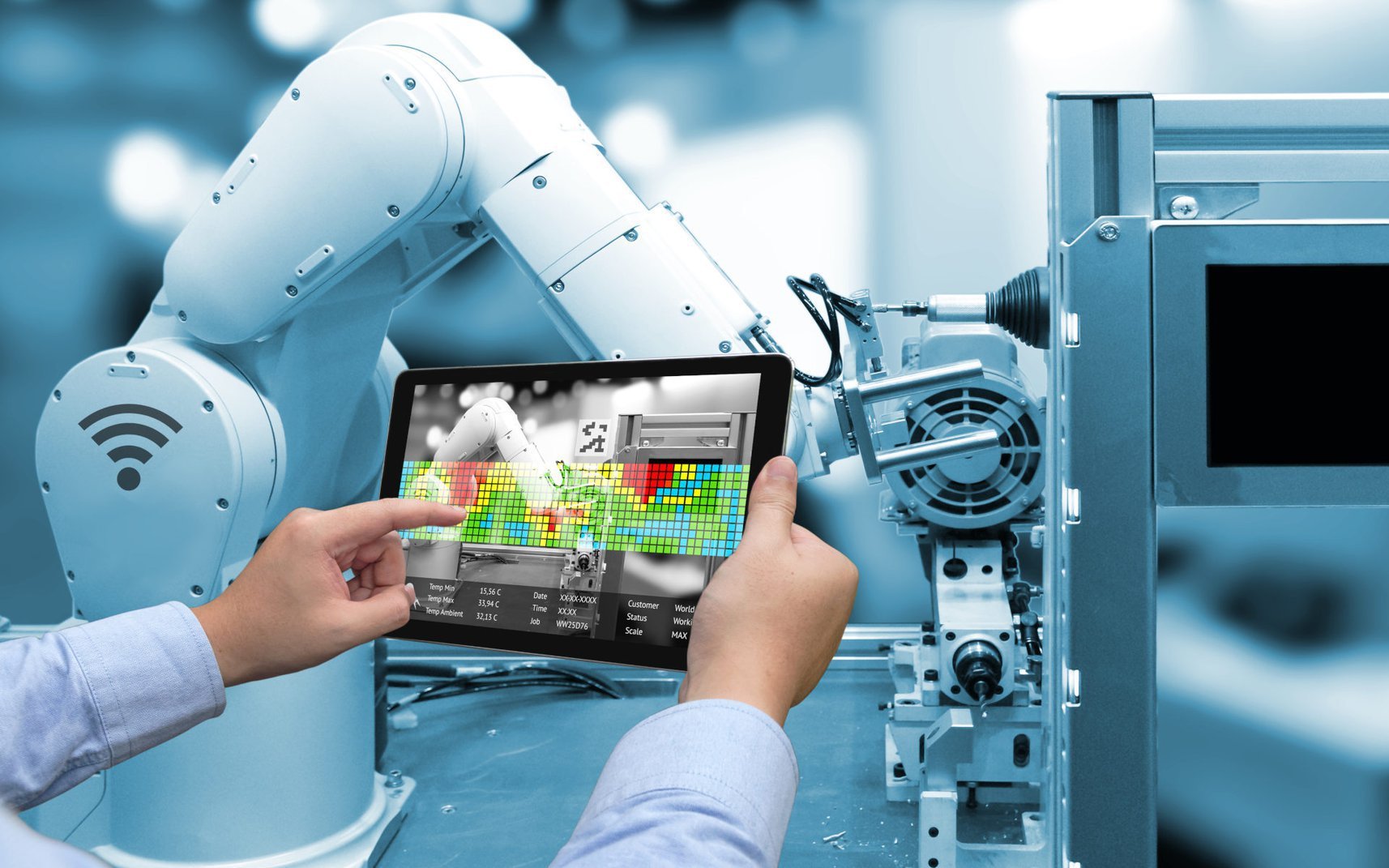
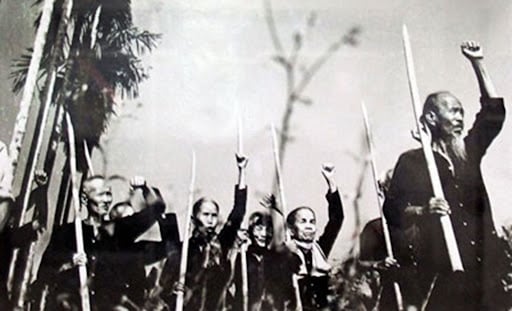
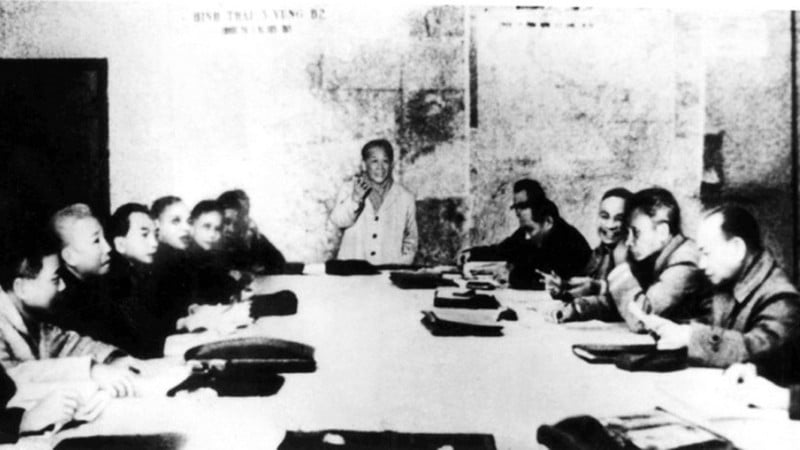



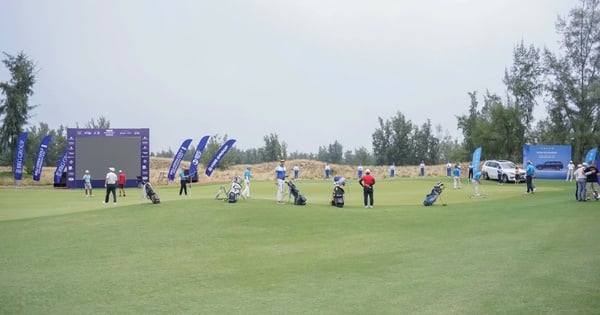
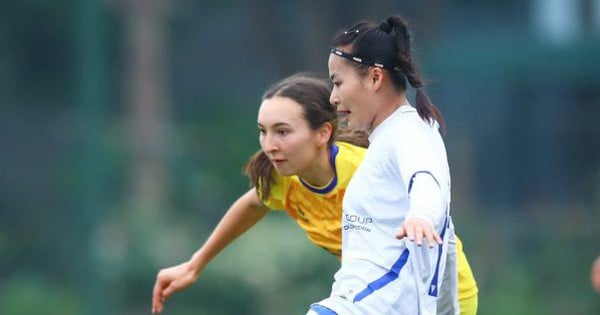
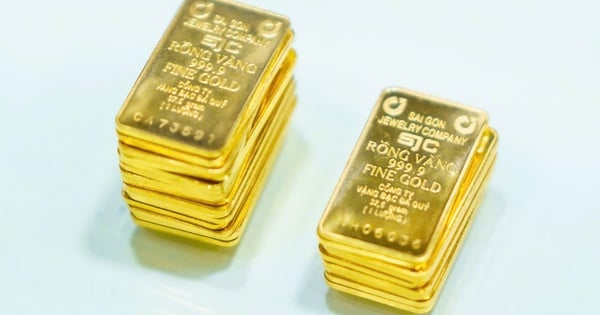
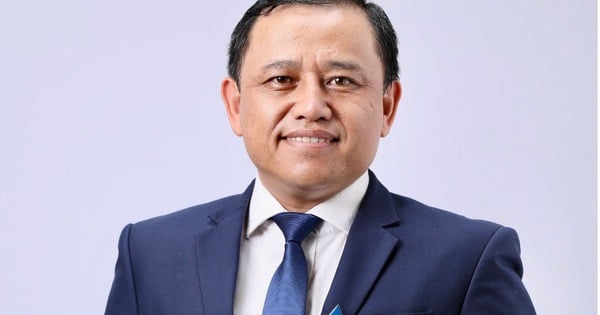
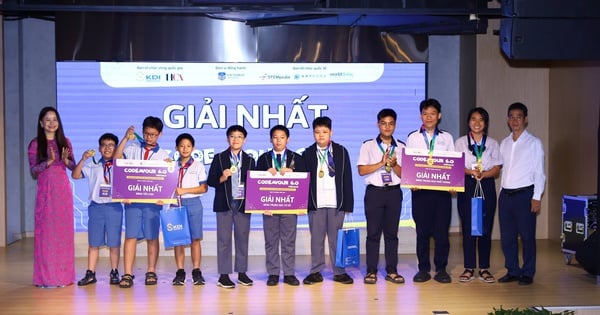
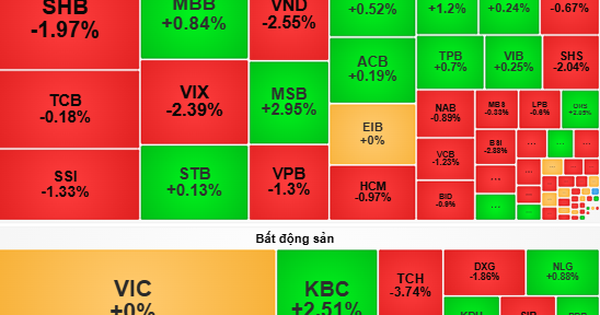

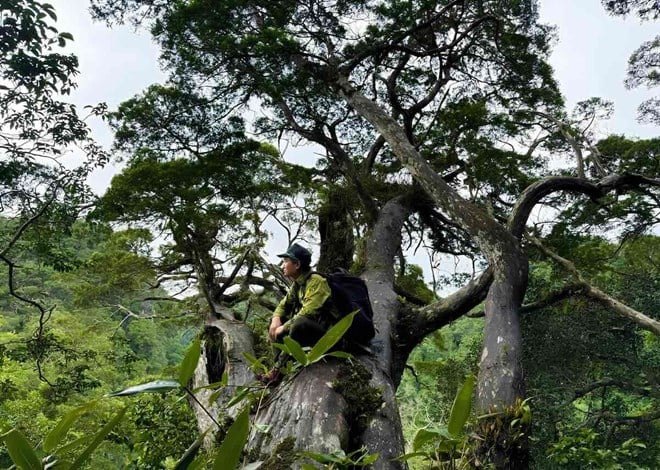











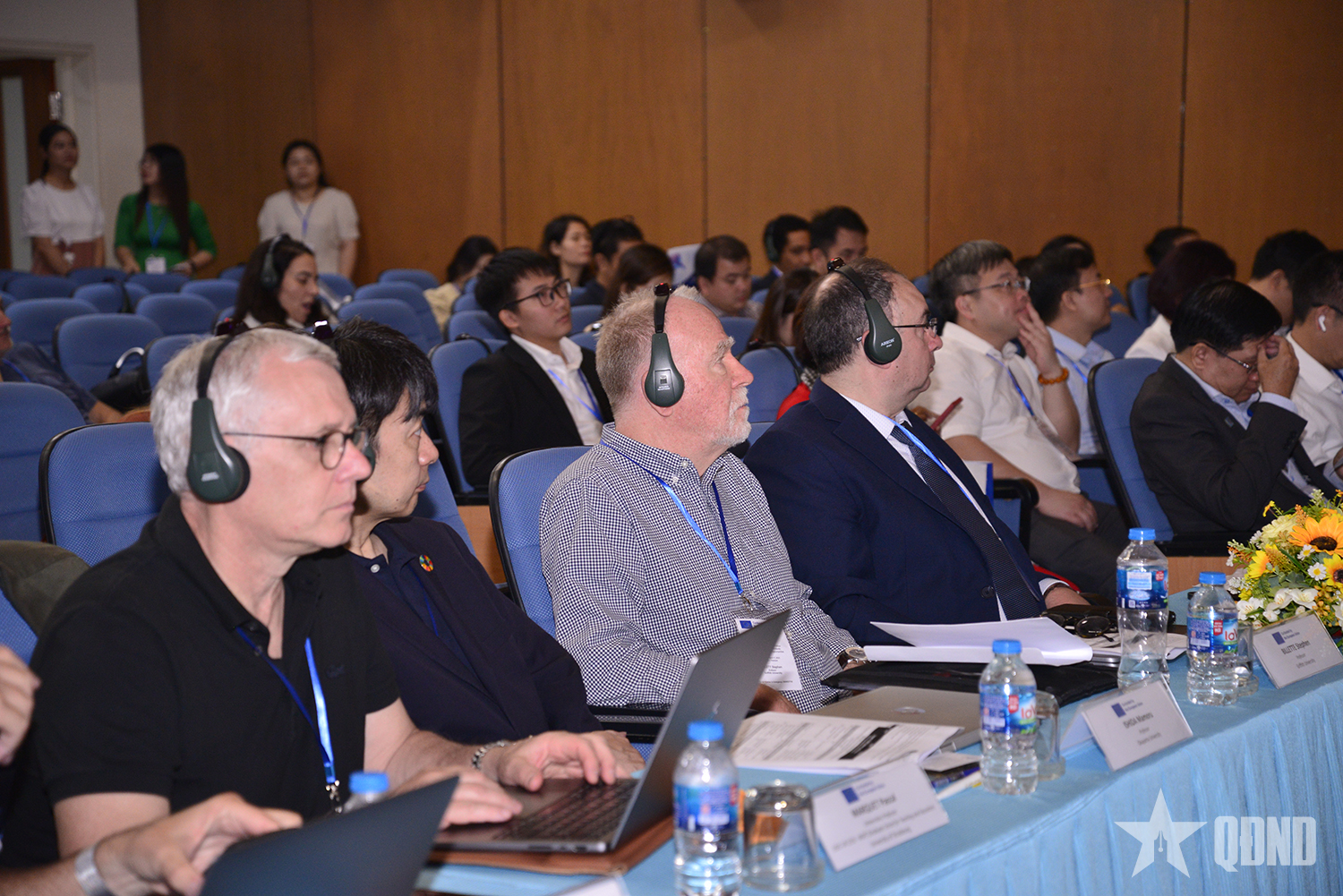

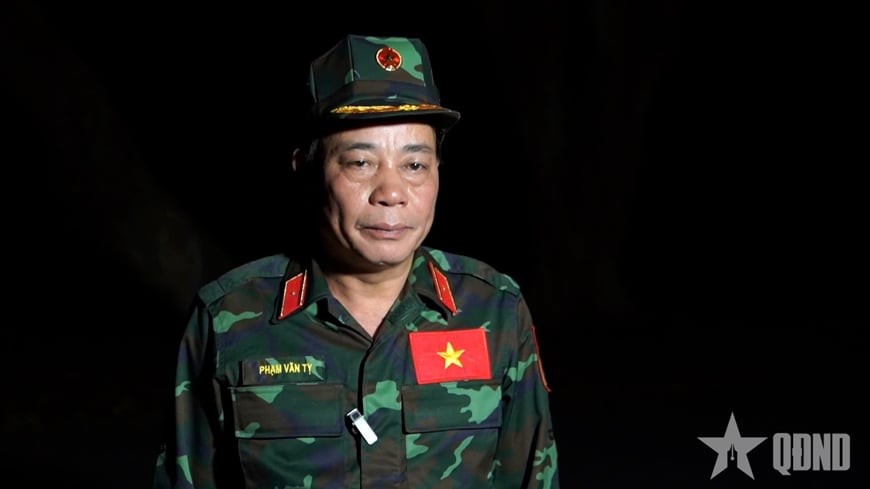
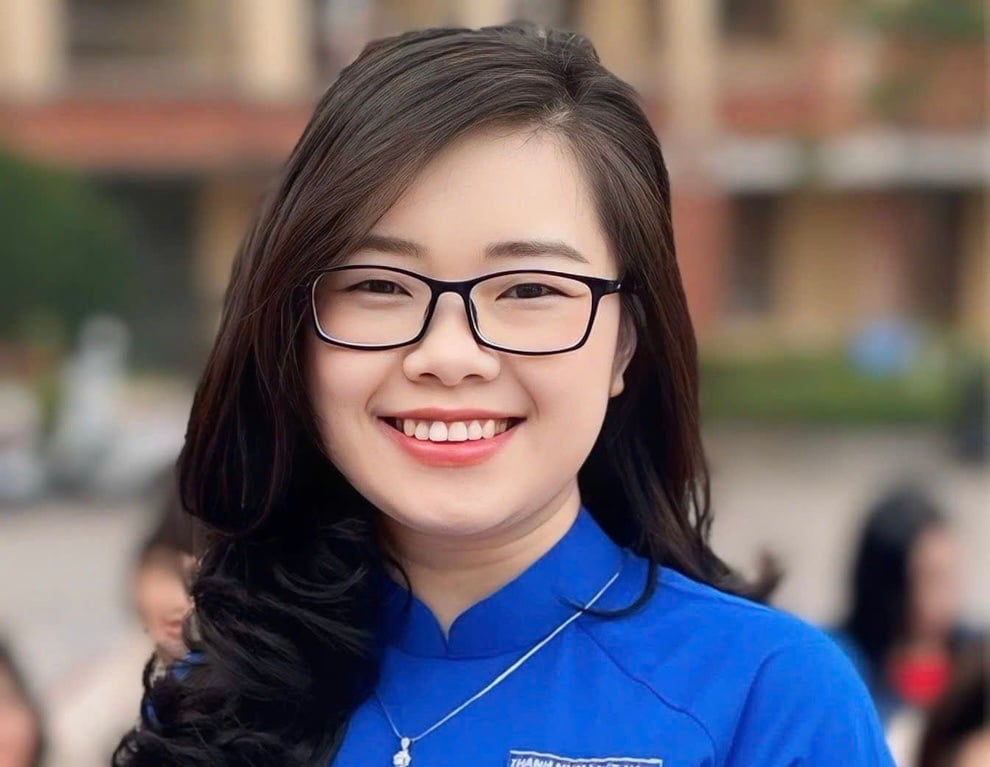

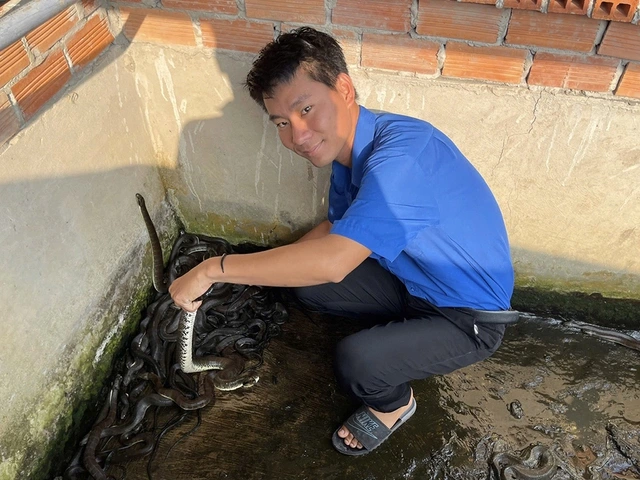


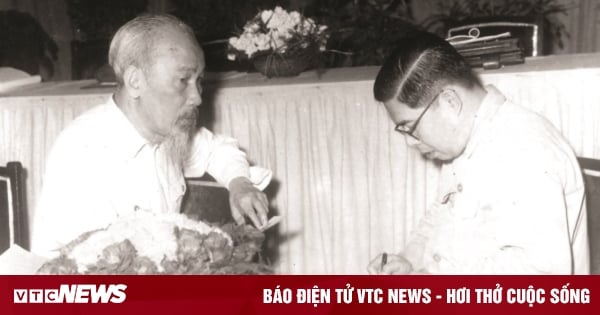








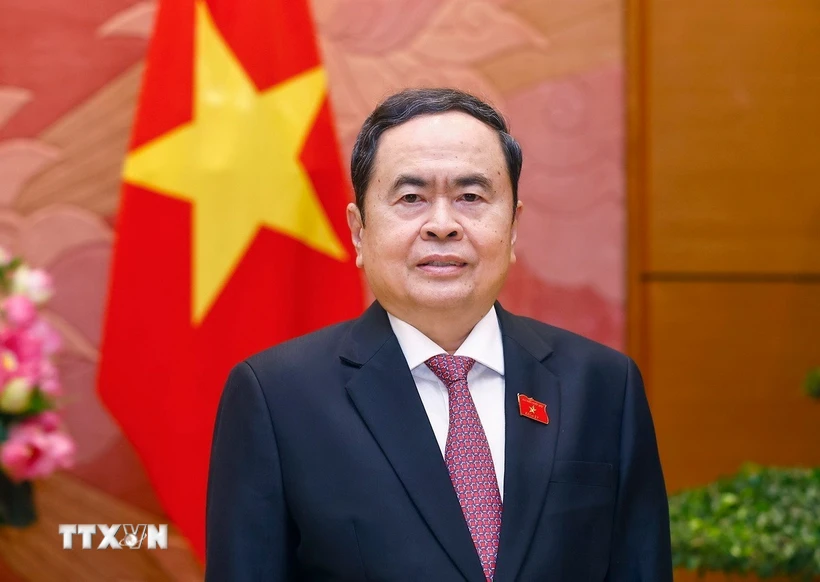

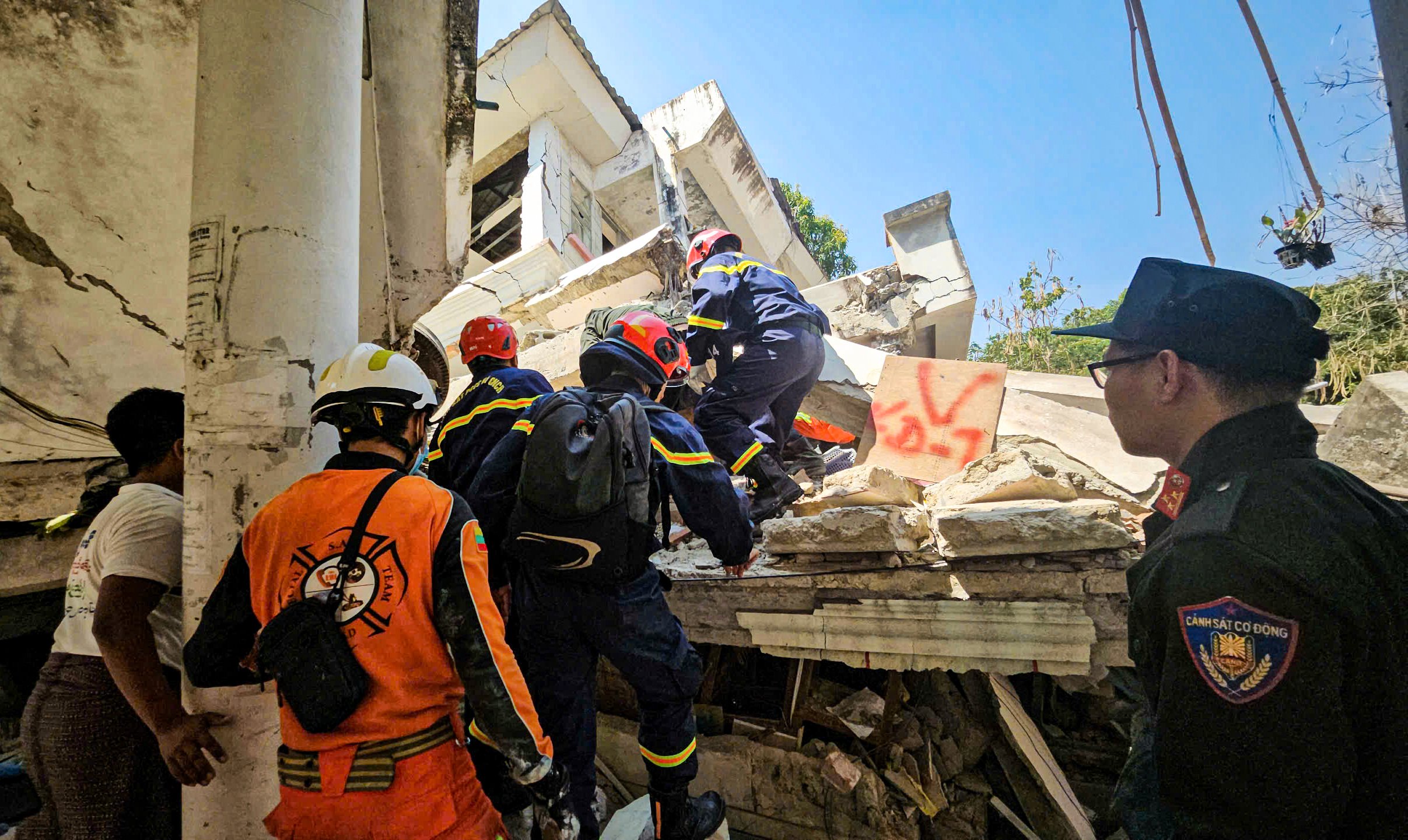
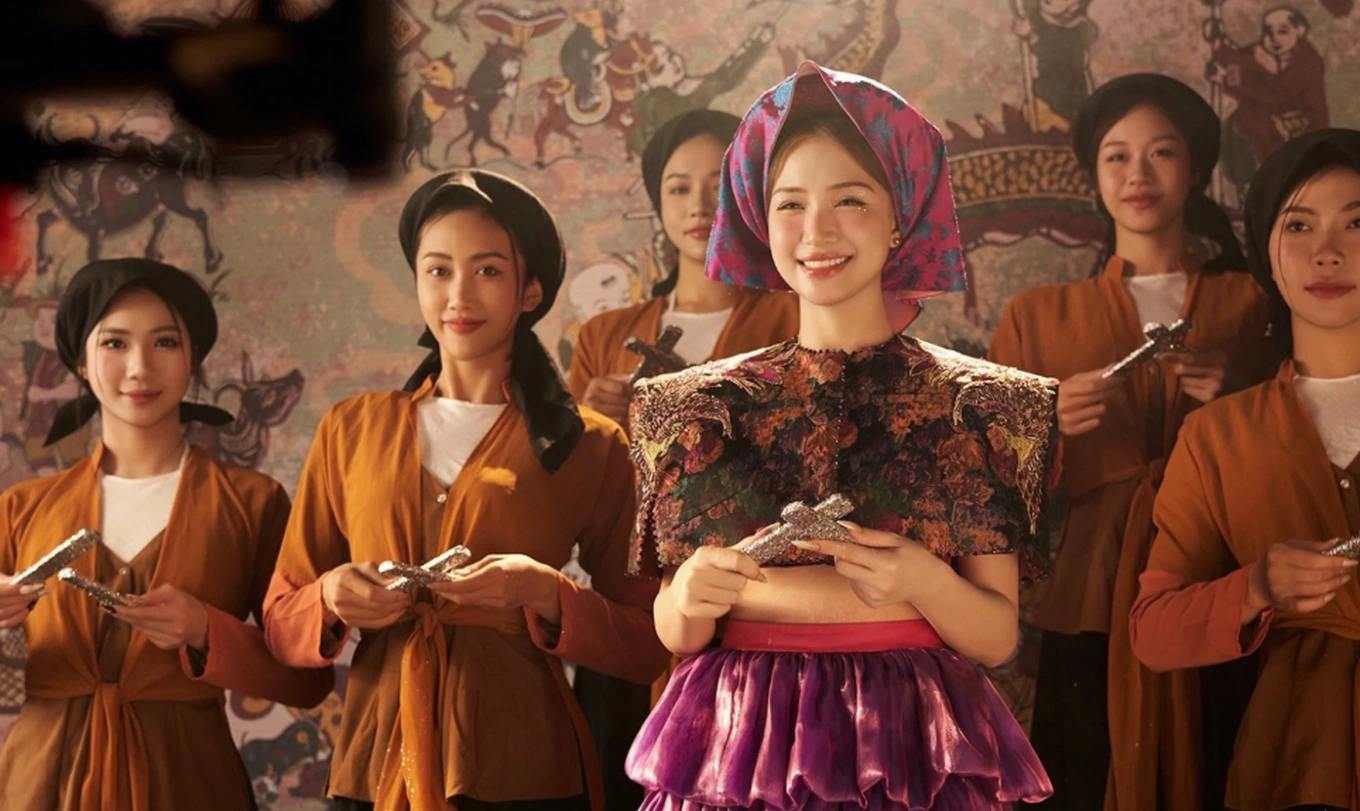
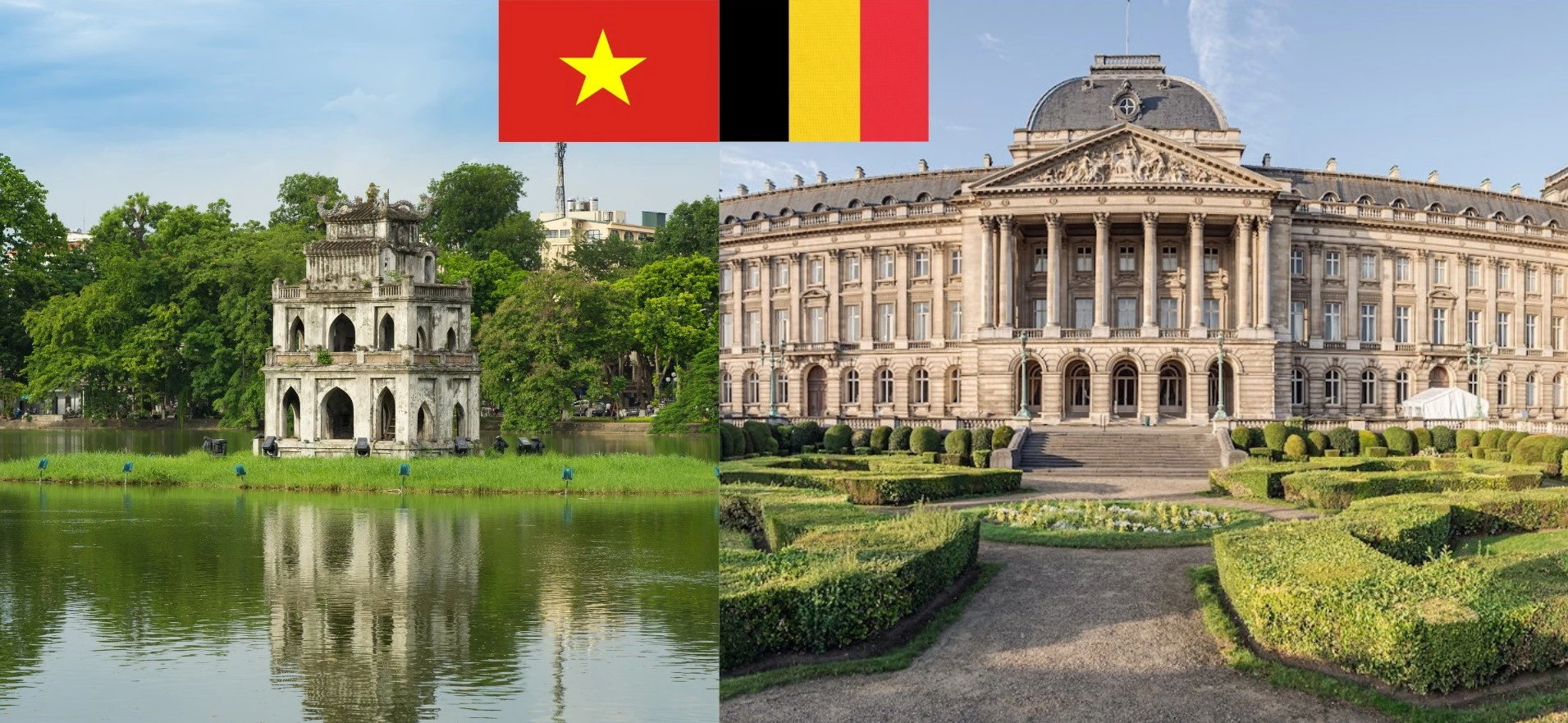
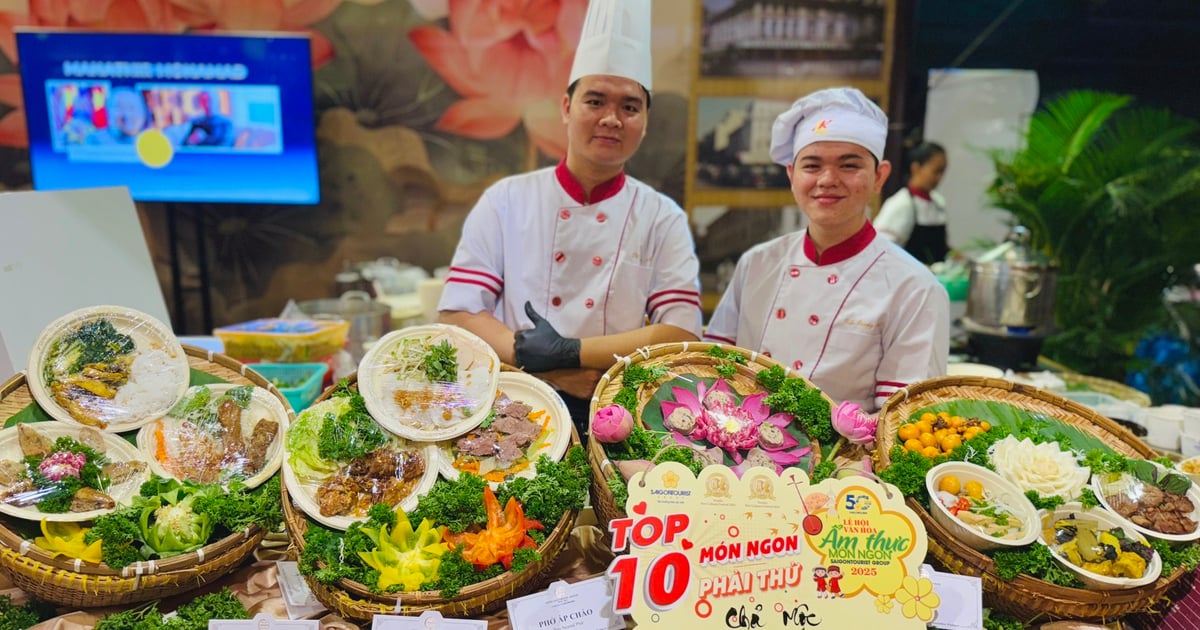

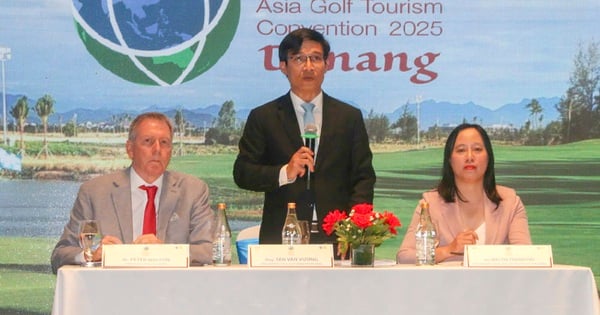

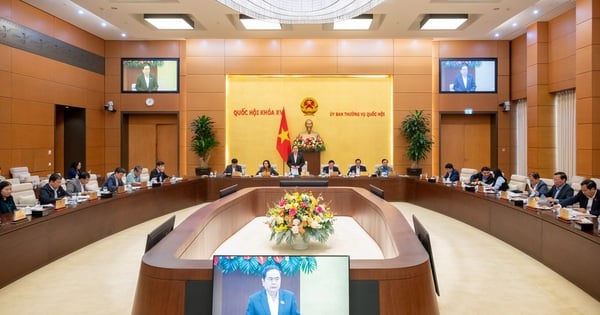
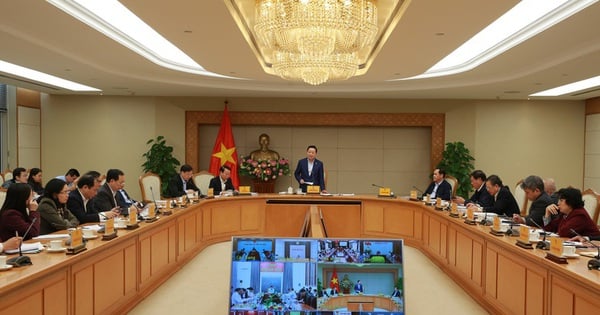
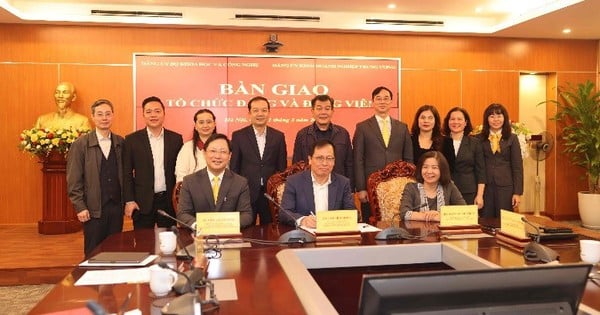

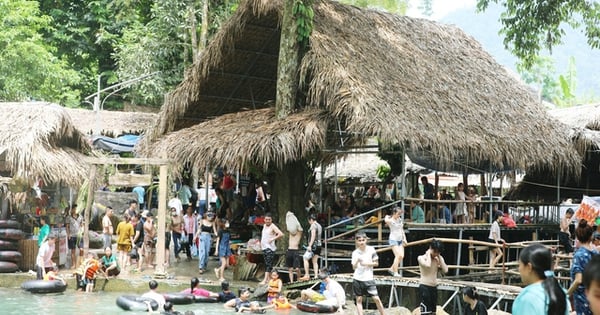
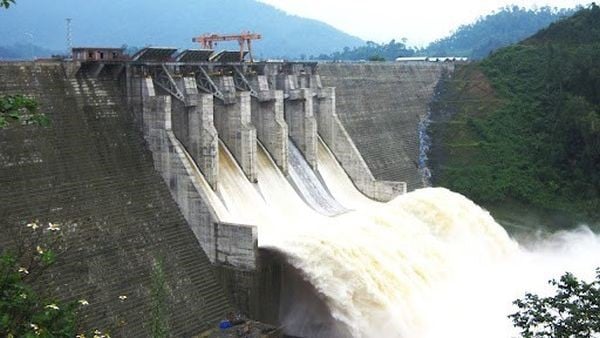

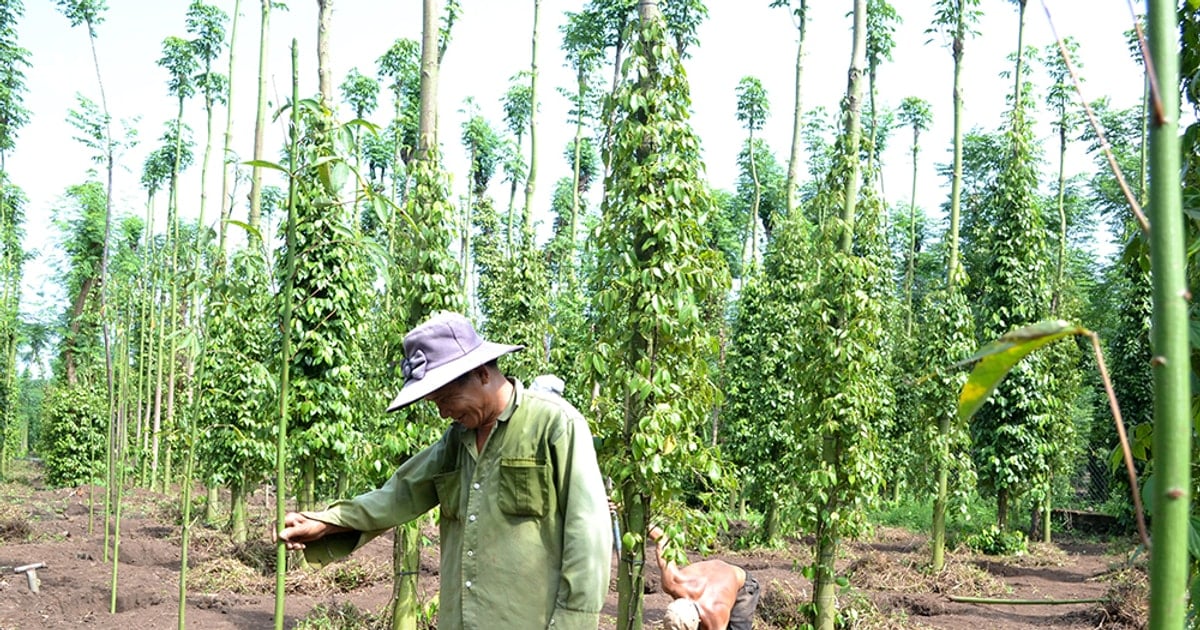

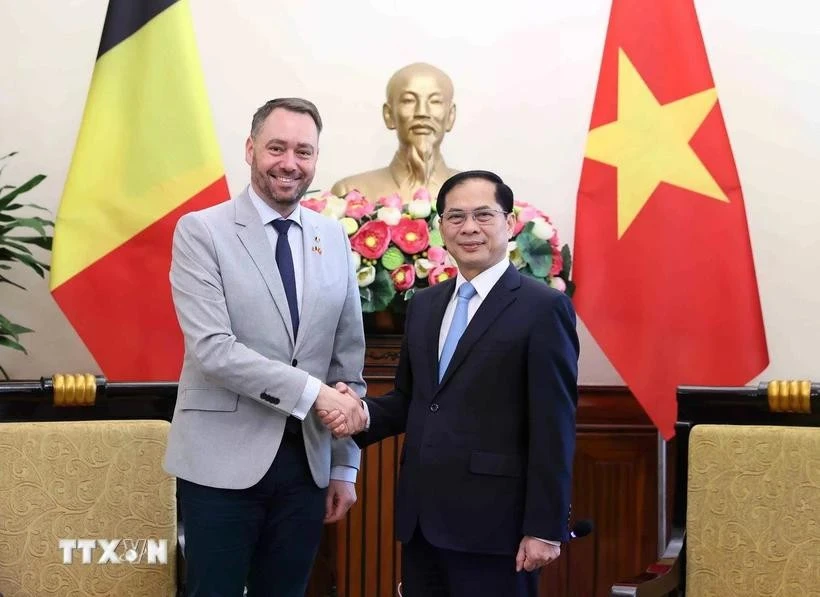

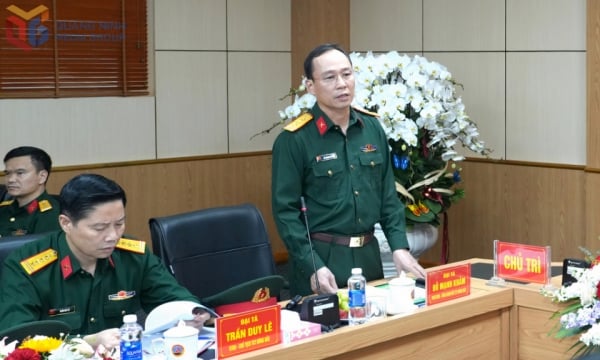


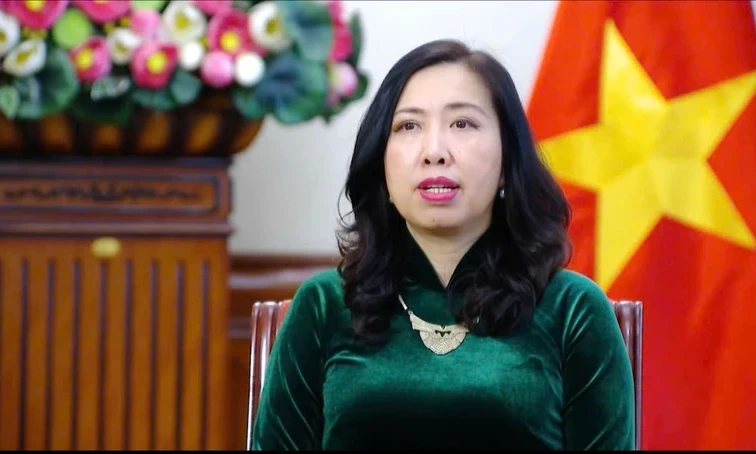











![[REVIEW OCOP] An Lanh Huong Vet Yen Cat](https://vstatic.vietnam.vn/vietnam/resource/IMAGE/2025/3/27/c25032328e9a47be9991d5be7c0cad8c)

Comment (0)